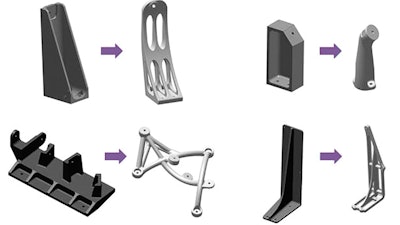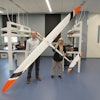
Boeing has signed a five-year collaboration agreement with Oerlikon to develop standard materials and processes for metal-based additive manufacturing.
Additive manufacturing, popularly known as 3D printing, is a controlled process in which material is joined or solidified to create a three-dimensional part.
According to Leo Christodoulou, Boeing Chief Technologist, the agreement is a step toward fully unlocking the value of powder bed titanium additive manufacturing for the aerospace industry. Christodoulou says the two companies will work together to "standardize additive manufacturing operations from powder management to finished product and thus enable the development of a wide range of safe, reliable and cost-effective structural titanium aerospace components.”
"Working together with Boeing will define the path in producing airworthy additive manufacturing components for serial manufacturing," says Dr. Roland Fischer, CEO Oerlikon Group.
Boeing and Oerlikon will use the data from this collaboration to support the qualification of additive manufacturing suppliers to produce metallic components using a variety of machines and materials.
The research will initially focus on industrializing titanium powder bed fusion additive manufacturing and ensuring parts made with this process meet the flight requirements of the Federal Aviation Administration and Department of Defense.
The collaboration will enable the companies to meet the current challenges to qualify materials and processes for aerospace and provide a route for the adoption of additive manufacturing with a qualified supply chain that achieves quality and cost targets.
Since 1997, Boeing has been a leader in researching and implementing additive manufacturing in the aerospace industry and currently has about 50,000 3D-printed parts flying on commercial, space and defenseprograms.
In 2017, Boeing became the first aerospace manufacturer to design and install a Federal Aviation Administration-qualified 3D-printed structural titanium part on a commercial airplane, the 787 Dreamliner.
With the creation of the Boeing Additive Manufacturing organization in 2017, Boeing is focused on using additive manufacturing to generate value for customers by enabling greater affordability, quality, customization and speed-to-market innovation.
Oerlikon is a service provider in additive manufacturing, offering a range of integrated additive manufacturing services along the entire value chain – from metal powder production to component design, manufacturing, post-processing and quality inspection.






















